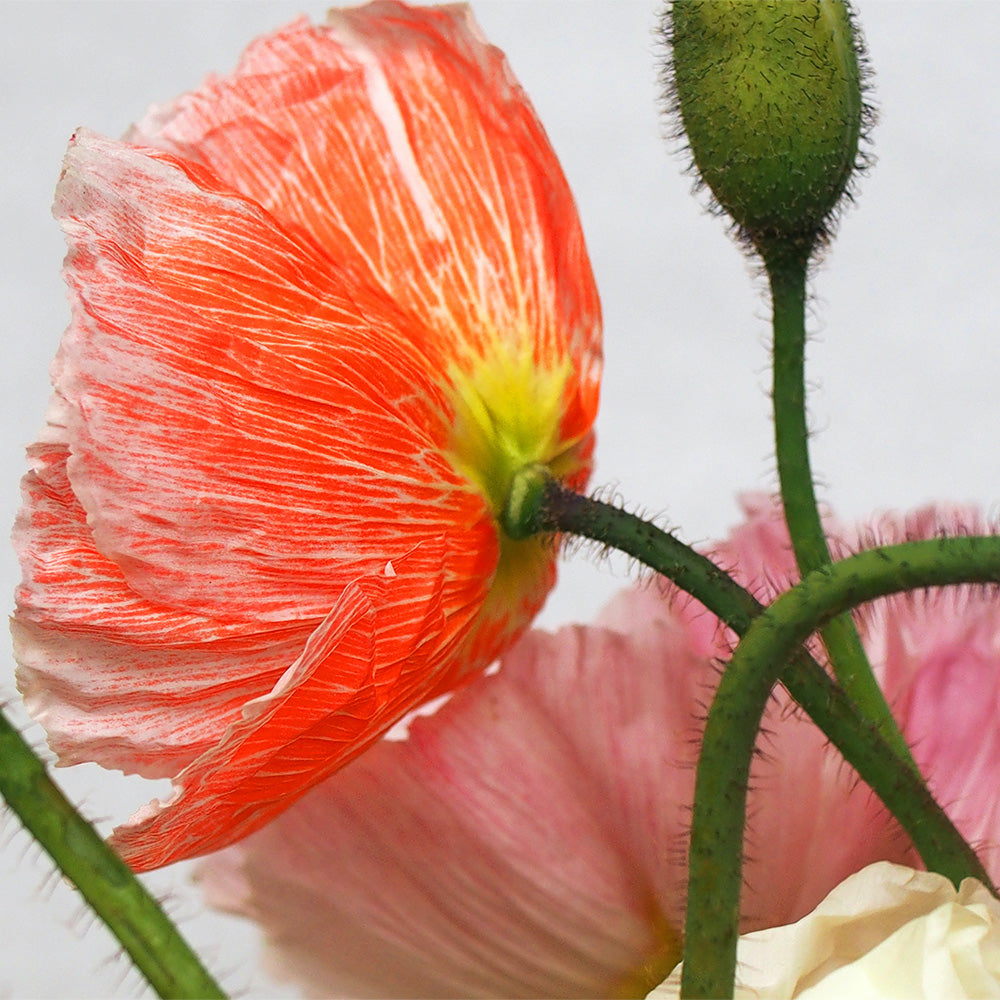
Expert Tips for Combating Lymphatic Congestion
Lymphatic congestion is when your lymphatic system struggles to drain fluid effectively, causing toxin buildup and health problems like swelling and fatigue. Since the lymphatic system is crucial for immune function and fluid balance, it’s important to address congestion. This article covers what lymphatic congestion is, its symptoms, and ways to improve lymph flow to boost overall health.
Key Points to Remember
- Lymphatic congestion can lead to symptoms such as persistent swelling, fatigue, and skin issues, highlighting the importance of early recognition and management.
- Improving lymphatic flow through exercise, diet, and hydration supports immune function, relieves swelling, and promotes overall well-being.
- Lifestyle changes, including stress management and regular physical activity, play a crucial role in maintaining optimal lymphatic health.
Understanding Lymphatic Congestion
When the lymphatic system fails to adequately evacuate lymph fluid, an excess of waste and toxins accumulates within the body. Serving as a vital part of our immune defense, this system—which encompasses both lymph vessels and nodes—filters out unwanted substances from collected fluid. Its continuous task involves moving stagnant lymph back into the bloodstream to preserve bodily equilibrium.
Inadequate functionality of the lymphatic network can lead to protein-rich fluid buildup in tissues, precipitating various health concerns including heightened susceptibility to skin infections and Medical complications. Although more rare than inefficiencies in flow, actual obstructions within these channels may arise due to growths like tumors or malignancies as well as infestations by certain parasites. Such blockages result in what is known as a lymphatic obstruction.
It’s crucial for proper management and preventive measures that one understands how congested lymph arises. Early detection of related signs helps guide interventions aimed at boosting the movement through these pathways, thereby aiding natural detoxification mechanisms critical for maintaining optimal health conditions.
Signs and Symptoms of Lymphatic Congestion
The presence of persistent swelling in limbs and other regions can be a key sign of lymphatic congestion. This condition is often marked by feelings of heaviness and pain, indicating difficulties with the drainage process within the lymph system. Symptoms such as fatigue, sore muscles, stiffness, and overall edema are also typical signs that suggest inadequate functioning of the lymphatic drainage.
Alterations to skin texture including dryness, thickening, breakouts like acne or rashes, along with growths resembling warts may point towards issues in lymph flow due to an accumulation of waste materials and toxins which should normally be filtered out through proper function. Swollen tonsils along with frequent throat infections or Enlarged nodes serve as external indicators related directly to underlying imbalances within the system responsible for transporting lymph fluid.
A multitude of additional health concerns could stem from this dysfunction, including:
- Joint inflammation indicative of arthritis
- Injuries without clear cause
- Unwanted weight gain
- Developmental cellulite patterns
- Persistent headaches
- A state reflecting chronic exhaustion
Early detection and recognition of these symptoms play crucial roles in both adopting preventative measures against potential illness progression while also allowing those affected individuals timely access to intervention options designed specifically for enhancing overall effectiveness seen amongst critical components comprising one’s personal well-being associated directly linked specific ability respective bodies facilitating transport essential fluids effectively across various biological systems employed herein.
Benefits of Improving Lymph Flow
Improving lymphatic circulation can result in a multitude of health advantages. It promptly mitigates swelling by expelling excess lymph fluid accumulated in tissues, which significantly decreases discomfort and enhances freedom of movement.
Optimized lymph drainage bolsters the immune system as it aids in the distribution of immune cells across the body, thereby increasing efficiency in warding off infections and illnesses. An enhanced flow of lymph contributes to healthier skin by diminishing inflammation and facilitating detoxification processes.
Ensuring vigorous circulation within the lymph system also boosts overall well-being. Reducing sensations like heaviness or tightness felt in one’s extremities contributes to heightened comfort and energy for everyday activities. The alleviation of swelling paired with reinforced immunity and superior skin condition underscore why maintaining optimal functionality of your body’s lymph network is crucial for good health.
Effective Exercises for Lymphatic Drainage
Partaking in physical activities is a key method for enhancing the function of lymphatic drainage. Bouncing on a small trampoline, an activity known as rebounding, considerably boosts the circulation within the lymph system by leveraging gravitational forces during exercise. This enjoyable and practical form of workout can be smoothly integrated into one’s daily habits to aid in keeping lymph fluid active.
Dynamic forms of yoga serve as another potent means to stimulate movement within the lymph vessels. The expansive movements that contract and relax major muscle groups during yoga support improved flow through the entire circulatory system. Yoga positions that include twists or inversions are particularly effective at encouraging activity in the lymphatic system.
Practicing deep breathing techniques plays a significant role in maintaining healthful functioning of this crucial bodily network by not only increasing oxygen levels but also supporting transport processes within thoracic ducts. Gentle stretching combined with deliberate motion helps ignite action among various points along with your body’s intricate webbing of vessels aiding more efficient movement throughout your overall flow systems thereby lessening any potential blockages.
The Role of Diet in Lymphatic Health
Maintaining a balanced diet filled with whole foods, including fruits and vegetables, is crucial for the efficient functioning of the lymphatic system. These nutritious options supply vital vitamins and minerals that promote healthy circulation of lymph within our tissues and contribute to overall health.
Embracing anti-inflammatory dietary choices by eating leafy greens and foods high in omega-3s can bolster the well-being of your lymphatic system. Inulin fiber-rich items such as bananas and garlic are beneficial for gut health while simultaneously reducing bodily inflammation, thereby supporting lymphatic efficiency. To aid this aspect of health, it’s advisable to minimize consumption of processed meals and refined sugars, which are known triggers for inflammatory responses in the body.
Integrating lean protein sources like fish or chicken into one’s nutrition regimen is advantageous for sustaining both tissue integrity throughout the body as well as fortifying immune function—both essential elements for an optimally operational lymphatic system.
Bodywork Techniques for Lymphatic Relief
The practice of lymphatic drainage techniques is highly beneficial for managing conditions such as lymphedema and rheumatoid arthritis. By utilizing methods like manual lymphatic drainage or a specific massage, swelling caused by fluid buildup can be decreased significantly. This type of treatment is particularly useful in addressing post-operative edemas and sinus congestion. The process also promotes an overall boost to health.
During a session of lymphatic massage, minimal pressure akin to the light touch equivalent to the weight of a nickel is applied strategically to prompt the movement of lymph towards the central part of your body without risking harm to delicate lymph vessels. The immune system gains improved functionality through this kind of massage since it helps rid toxins from your system while promoting better flow within the channels responsible for transporting lymph.
For those who are hesitant about self-administering these types of massages accurately enough might consider seeing trained professionals whose expertise will guarantee that each technique’s application serves its purpose correctly thus leading to better lympathic health outcomes.
Dry Brushing for Enhanced Lymph Flow
The practice of dry brushing serves as an efficient method to enhance lymph flow, supporting the health of the lymphatic system. By diminishing congestion within this system, skin brushing contributes positively to its function. Engage in this technique upon awakening each day, preferably prior to showering for best results.
It is important to use a brush with natural, gentle bristles when undertaking skin brushing. Such a brush aids in exfoliating and revitalizing the skin while simultaneously encouraging proper circulation through stimulation of lymphatic channels which can promote improved fluid movement and diminish potential risks associated with stagnant fluid such as increased incidence of infections or compromised cell removal processes.
Adhering to an established routine maximizes the benefits derived from skin brushing. Begin at your extremities and progress towards your heart using soft sweeping actions. Doing so assists in ushering lymph toward your central circulatory region where it can be efficiently filtered and drained away from tissues after collecting excess fluids along with cells requiring disposal.
Hydration and Its Importance
Maintaining proper hydration levels is essential for the smooth operation of the lymphatic system. By drinking enough water, one can ensure that lymph fluid flows properly and that waste products and toxins are effectively removed from the body. This not only improves lymphatic performance but also reduces fluid buildup in tissues.
Water forms a significant part of lymph, making it necessary to drink ample amounts daily to capture bacteria and bolster white blood cells’ role in immunity. If you don’t consume enough water, your body might suffer from stagnation within the lymph system, exacerbating current ailments and potentially leading to new health issues.
Enhancing both your overall detoxification processes as well as healthy circulation within the lymph system can be achieved by simply increasing your intake of fluids throughout each day. Adopting this habit has a substantial effect on ensuring better functioning of our immune defenses along with promoting general physical wellness.
Herbal Remedies and Supplements
The lymphatic system gains considerable support from the use of herbal treatments. Particularly, adaptogenic herbs aid in helping the body manage stress and boost general health, which is advantageous to the maintenance of a healthy lymphatic system. These herbs are effective in sustaining proper functioning of the lymphatic network and enhancing fluid movement.
Herbs containing anti-inflammatory properties can diminish inflammation throughout all areas of the body, which has a beneficial impact on both lymphatic functionality as well as overall wellness. By integrating these botanical remedies and supplements into your daily regimen, you provide an organic and effective means to bolster your lymphatic health.
Nevertheless, it’s crucial to seek guidance from a healthcare expert before embarking on any new regimens involving herbal remedies or supplements—especially for individuals with pre-existing medical conditions or those receiving treatment for cancer—to confirm that such interventions are safe and tailored suitably to their personal health requirements.
Lifestyle Changes to Support Your Lymphatic System
Incorporating certain lifestyle modifications can significantly bolster the health of your lymphatic system. It’s vital to control stress, as persistent high-stress levels contribute to increased inflammation that can adversely affect the well-being of your lymphatics. Ensuring you get enough restorative sleep is also critical in reducing bodily inflammation and fostering a robust lymphatic system.
Engaging in regular exercise facilitates proper drainage of lymph fluid by encouraging muscle movement. Exercises like walking, swimming, and yoga are especially effective at maintaining smooth circulation of lymph and avoiding blockages.
It’s advisable to consult with a healthcare professional before initiating any new wellness routines, particularly for individuals with existing medical conditions. By embracing these changes in lifestyle habits, you provide valuable support to your body’s lymphatic system, which contributes positively to overall health and vitality.
Summary
Caring for your lymphatic system is an important aspect of maintaining overall health and well-being. By incorporating these suggestions into your daily routine, you can support your body's natural detoxification processes and promote optimal lymphatic function.
Remember, small, consistent changes can lead to significant improvements in your health over time. If you have any concerns about your lymphatic health, don't hesitate to consult with me or a local healthcare professional for personalized advice.
Frequently Asked Questions
What are the primary causes of lymphatic congestion?
Accumulations of toxins and waste materials in tissues typically result from insufficient lymphatic drainage, genuine blockages, or other deficiencies within the lymphatic system.
To manage this effectively, it is crucial to tackle these underlying issues.
What are common symptoms of lymphatic congestion?
Common symptoms of lymphatic congestion include persistent swelling, fatigue, muscle pain, skin changes, and swollen lymph nodes.
Recognizing these signs early can lead to more effective management.
How can improving lymph flow benefit my health?
Improving lymph flow enhances immune function and reduces swelling, leading to better skin health and overall well-being.
Prioritizing lymphatic health can significantly benefit your health.
What exercises are effective for lymphatic drainage?
Participating in activities like rebounding, practicing yoga, performing deep breathing exercises, and engaging in gentle stretching can greatly improve lymphatic drainage.
By including these types of exercises into your regular schedule, you will promote your general health and well-being.
What dietary changes can support lymphatic health?
To support lymphatic health, focus on a diet rich in whole foods, anti-inflammatory options, inulin fiber sources, and lean proteins.
These changes can enhance overall lymphatic function.













